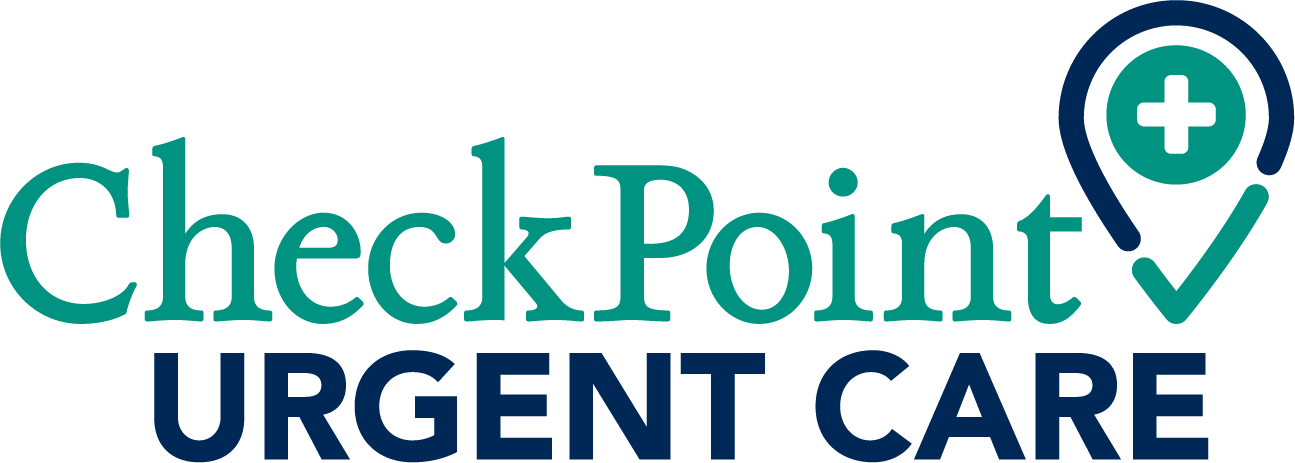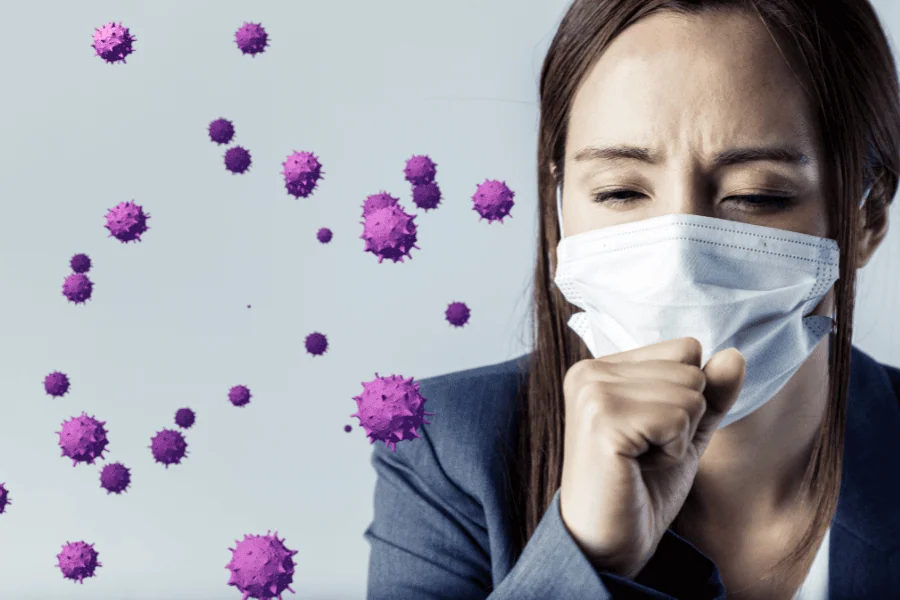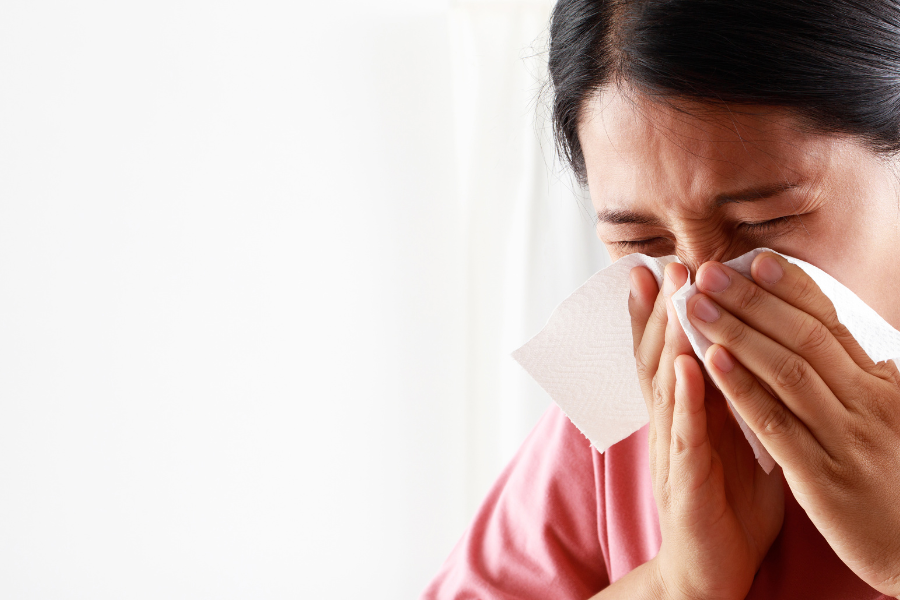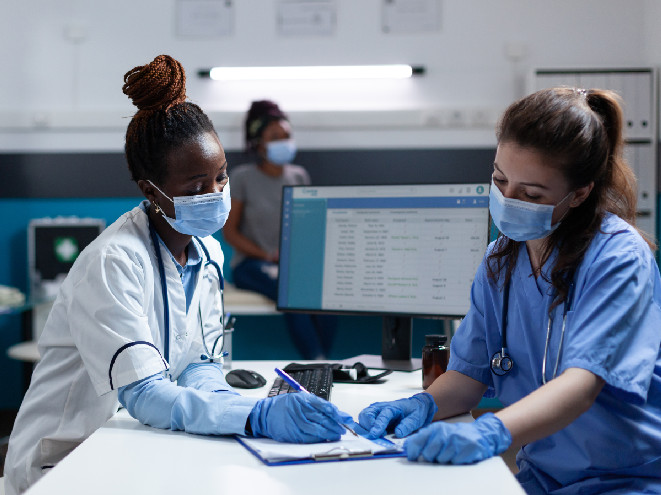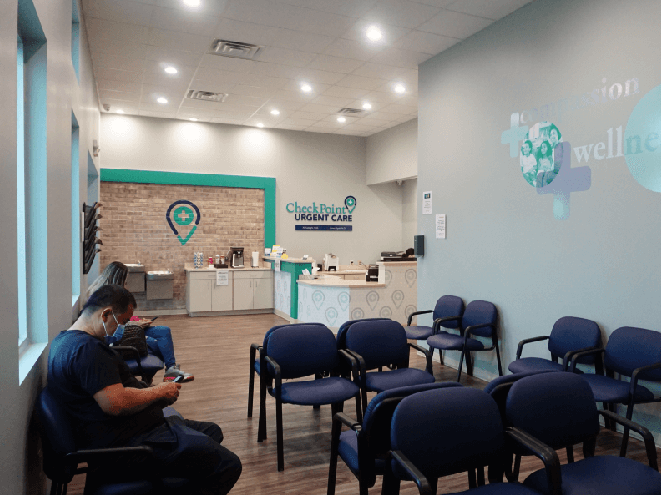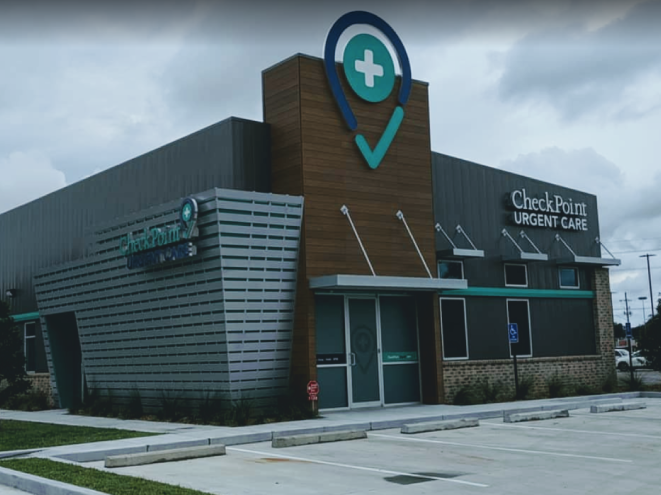Bacterial infections are diseases that can impact different areas of the body- skin, lungs, blood, and other parts of the body. Bacterial infections occur when single-celled organisms multiply and release toxins. What are common bacterial infections, and how can you treat and prevent them? CheckPoint Urgent Care is your source when you believe a bacterial infection is impacting your quality of life.
What is a Bacterial Infection?
Bacterial infections are any illness or condition caused by bacterial growth or toxins. We can come into contact with harmful bacteria every day- whether it’s from the environment, an infected person, contaminated food or water, or insect bites. You can get sick from this bacteria getting in your skin, GI tract, lungs, heart, brain, or anywhere else in your body.
What is Bacteria?
Bacteria are single-celled living organisms that reproduce quickly. There are millions of bacteria that live in the soil, air, and on surfaces that we come into contact with on a daily basis. Most of these bacteria are not harmful, in fact, most are helpful. Fewer than 1% of known bacteria cause diseases in humans. Bacteria can help the body digest food and kill off harmful bacteria that may enter the body. Fossils indicate that bacteria have been present on Earth for roughly 3.5 billion years. We also know that they can survive in all kinds of environments.
Difference Between Bacterial and Viral Infections
Both bacteria and viruses can cause infections in people. While some of the symptoms of these infections can be similar, viruses and bacteria are vastly different in structure, reproduction, and treatment.
Viruses are not made from a single cell and must attach themselves to a host cell in order to reproduce. Viruses are much smaller than bacteria, and contain only a protein coating and genetic material- either RNA or DNA. Unlike bacteria, most viruses do cause disease in humans. Viruses are also quite specific in the cells they attack. Antibiotics can treat bacterial infections, but only a few medications can treat viral infections.
How do Bacterial Infections Spread?
There are 4 main ways in which bacterial infections spread:
-
- Airborne or droplet: bacteria spread through contaminated dust, droplets of water or mucus. Legionnaires’ disease, tuberculosis, and whooping cough (pertussis) are all examples of bacterial infections that spread through this method
- Contact: This can be direct contact with infected skin or mucous membranes or indirect contact with infected surfaces. Some STIs like chlamydia and gonorrhea are examples of bacterial infections that spread through contact
- Vector: infections from bugs or insects are called vector-borne illnesses. Lyme disease is an example of a vector-borne illness
- Vehicular: there is a “vehicle” of transmission with this method, and it’s usually contaminated food or water. E. coli is an example of a bacterial infection you can get from infected meat. Following proper cooking methods and getting meats from trusted sources can help combat bacterial infections from food sources
Treating & Preventing Bacterial Infections
Symptoms of bacterial infections can vary, mostly depending on where your body is infected. Main symptoms include fever, chills, fatigue, and headache, except for skin infections where redness and irritation are the main symptoms. If the bacterial infection is specific to a certain part of the body, you may experience nausea and diarrhea (GI tract infections), stiffness of the neck (meningitis) or burning during urination (STIs or urinary tract).
Bacterial infections are diagnosed by taking samples to test for the bacteria. In the lab, the technician will look for signs of bacteria- like antigens or antibodies. The lab might also try to grow bacteria from your samples to prove their existence.
It’s important to note that some bacterial infections go away on their own, but some do need to be treated. Antibiotics will be prescribed to treat the infection, but depending on the severity, your doctor may want to give them in the form of an IV rather than in pills over the course of a few days.
There are a few ways to prevent bacterial infections:
- Vaccinations: there are vaccines for many different types of illnesses, like tetanus, whooping cough and diphtheria
- Practice good hygiene: this includes practicing good hand-washing techniques and wearing clean and dry clothing
- Keep wounds clean: clean and cover any wounds to prevent bacteria from getting in
- Practice safe food habits: cook meats to recommended internal temperatures, store food properly, and wash and peel produce before consuming
- Practice safe sex: use a condom during intercourse
- Protect your skin from bug bites: use insect repellent, wear long sleeves, and check for ticks after being outdoors
Treat Bacterial Infections at CheckPoint Urgent Care
If you think you or someone in your family has a bacterial infection, let the team at CheckPoint Urgent Care get you the treatment you need. Some bacterial infections need medical intervention so you aren’t spreading it to others. Find a location near you on our website today.
